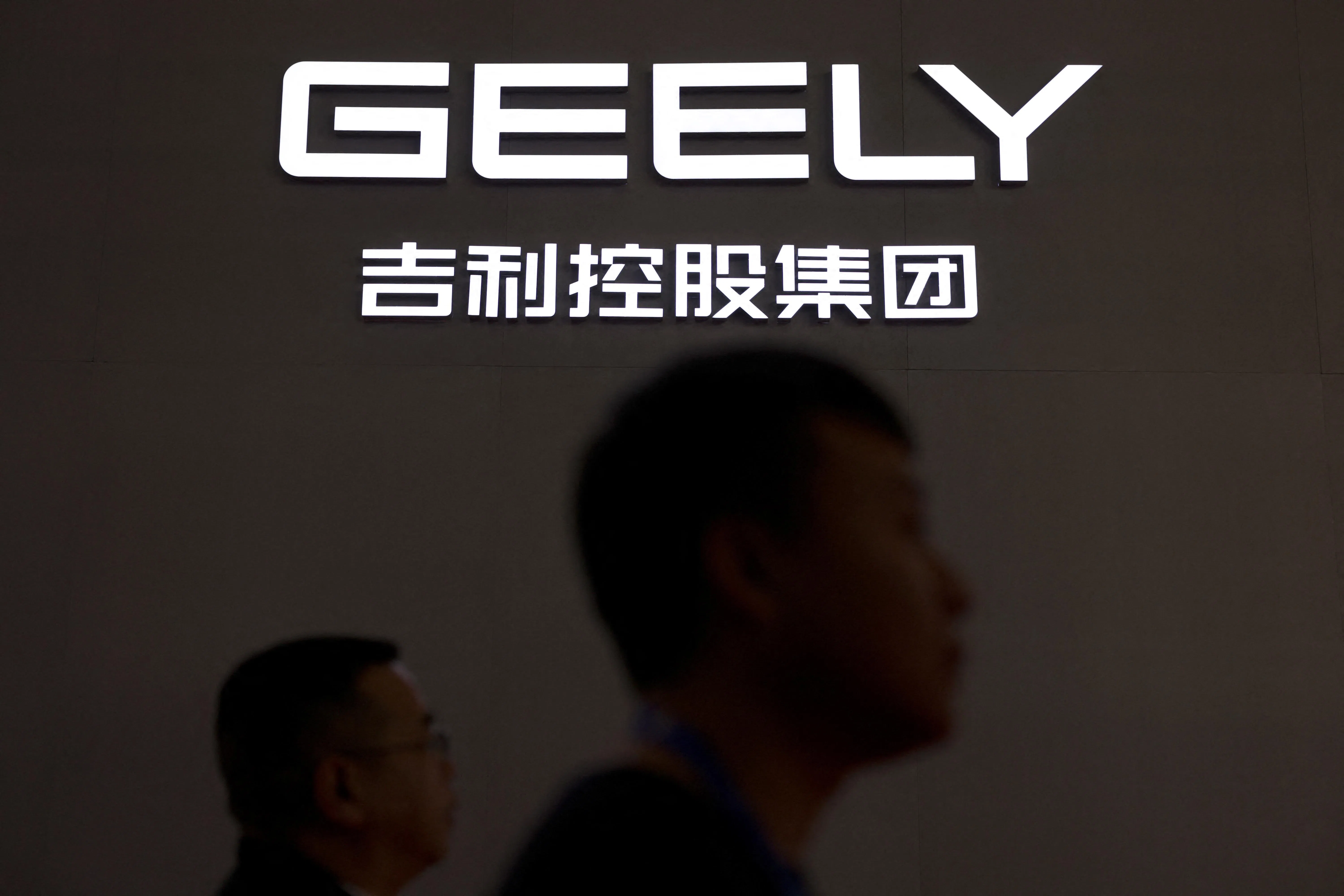GEELY Automobile Holdings, the Hong Kong-listed arm of billionaire Li Shufu’s car empire, is the latest Chinese automaker to come out swinging against proposed European Union tariffs, saying the extra levies would mean a large hit to exports to the continent.
“The EU increasing import tariffs would have a relatively big impact on the sales of Zeekr and Geely vehicles in the European market,” said Andy An, an executive with Geely Auto who also serves as CEO of the company’s Zeekr pure electric vehicle (EV) brand.
The European Commission on Tuesday (Aug 20) proposed a 19.3 per cent tariff on EV imports from Geely – slightly lower than the 19.9 per cent previously mooted. The US meanwhile has quadrupled tariffs on Chinese EVs to more than 100 per cent, effectively locking them out of the market. Other countries including Turkey and Canada have taken or are considering similar actions.
Geely Auto executive director Daniel Li, also speaking at a briefing on Wednesday after the company’s financial results, added that Geely as a group has made significant contributions to Europe’s economy for more than a decade via its investments. The parent company controls Sweden’s Volvo Cars, and British brands Lotus Cars and London Electric Vehicle Company.
This should allow a more flexible response to tariffs considering Geely has resources in place that can be leveraged upon, such as existing production facilities for Volvo and Lotus, Li said.
Geely Auto posted a 575 per cent rise in net income earlier on Wednesday to 10.6 billion yuan (S$1.9 billion) for the six months ended June 30 from a year earlier. The deemed disposal of subsidiaries from establishing the Horse venture with partners Renault and Saudi Aramco resulted in a one-time gain of 7.5 billion yuan, the automaker said.
BT in your inbox
Start and end each day with the latest news stories and analyses delivered straight to your inbox.
Excluding the item and impairment loss on assets, profit attributable to shareholders was 3.37 billion yuan, up 114 per cent. Revenue climbed 47 per cent to 107.3 billion yuan.
Vehicle deliveries gained 41 per cent in the first half to 955,730 units, with EVs and plug-in hybrids leading the growth. The strong performance saw Geely raise its 2024 sales target to two million vehicles from 1.9 million.
Geely continues to build on the momentum of its plug-in hybrid range, with its affordable Galaxy series launching new cars such as the E5 electric SUV. Premium brand Zeekr has also refreshed existing models, including the global editions of its minivan 009 and X compact SUV.
“In the face of the slowdown in the growth rate of China’s passenger car market and the increasingly fierce price competition, the group has adopted the strategy of ‘striving for progress while maintaining stability’,” Geely said. “This strategy enabled the group’s sales performance in the first half of 2024 to exceed management’s expectations and reach a record high.”
Polestar, however, the beleaguered EV brand controlled by Geely Auto’s parent, saw a 42 per cent decline in exports to the EU in July after the provisional tariffs came into effect. Its shipments in the first seven months fell 37 per cent, according to research from Dataforce. The Swedish-origin brand is separately listed in the US, but its challenges mirror those facing Geely Auto’s EV exports.
Geely Auto is also battling an ultra competitive domestic market at home in China, where a price war has hit the bottom line of automakers and a weakening economy has weighed on consumer spending for big ticket items such as new cars. In an attempt to boost auto spending, the government has introduced a cash-for-clunkers incentive for buyers who trade in old vehicles for new qualifying EVs and fuel-efficient petrol cars, with rebates of up to 20,000 yuan.
The subsidy would benefit manufacturers including Geely, with Bloomberg NEF expecting the policy to potentially drive sales of 1.1 million EVs, worth around US$26 billion. BLOOMBERG







